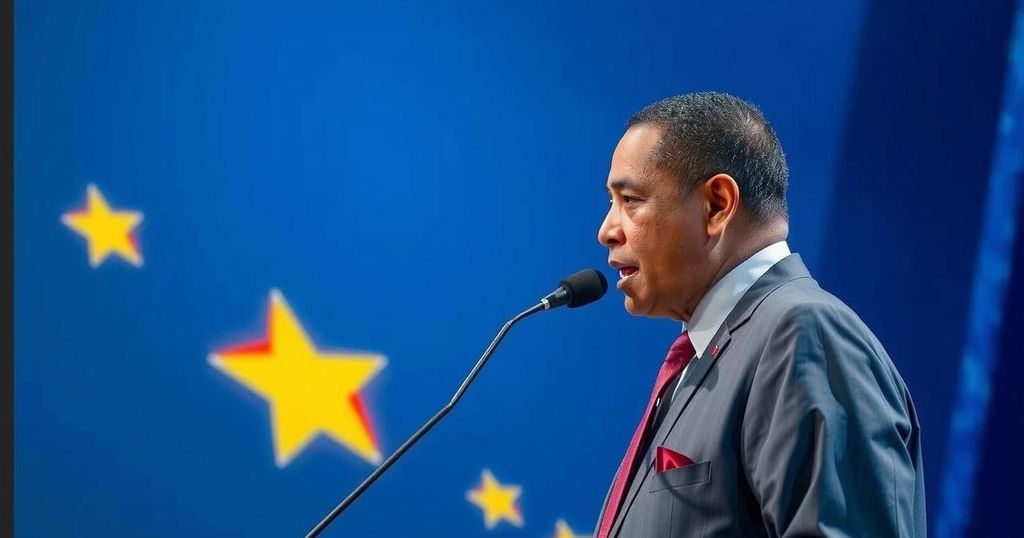Mauritius Elections: Wiretapping Scandal and Its Implications for Democracy

Mauritius is holding elections amidst serious wiretapping allegations, involving government officials and causing public unrest. The political climate is charged with concerns about rising living costs, crime rates, and corruption, significantly impacting the electorate’s trust. Prime Minister Jugnauth seeks re-election amid a tumultuous backdrop, while opposition candidates capitalize on the growing discontent among voters regarding socioeconomic issues.
Mauritius, renowned for its stable democracy, is set to hold its 12th national election amidst extraordinary allegations of wiretapping involving government representatives. Approximately one million eligible voters will participate, focusing on issues heightened by recent leaked recordings implicating prominent political figures in unethical conduct. The political landscape is marred by allegations of corruption, a social media ban preceding the election attempt, and a deepening national concern over economic conditions, particularly rising living costs which have significantly impacted citizens since the COVID-19 pandemic. This election will involve voters selecting representatives for the National Assembly, which consists of 70 lawmakers, with a mixture of parties vying for power including the ruling Militant Socialist Movement (MSM), the Labour Party, and others. Prime Minister Pravind Kumar Jugnauth seeks re-election, facing off against opposition leader Navin Ramgoolam of the Labour Party and newcomer Nando Bodha of Linion Reform. The electorate’s concerns are centered on high living costs, rising crime rates, and increasing corruption, particularly in light of the wiretapping scandal that has unnerved Mauritians. The Ministry of Information was forced to address allegations of state-sanctioned wiretapping after a TikTok account released recordings of conversations among powerful officials discussing opposition members and plans to manipulate sensitive information. This has prompted Prime Minister Jugnauth to declare a judicial inquiry amid claims of potential tampering with the recordings. Additionally, a pre-election social media ban was perceived as an attempt to suppress dissent, leading to public outcry before its prompt rescinding. Such actions have heightened perceptions of an authoritarian slide. As the electorate heads to the polls, they will be grappling with issues of rising commodity prices, a resurgence of drug-related crime, and perceived government corruption. The outcome of this election will be a critical juncture for Mauritius, where the electorate is eagerly seeking assurances of transparency, accountability, and substantive action on pressing socio-economic issues.
Mauritius has been a stable parliamentary democracy since gaining independence from Britain in 1968. The country’s political framework includes periodic national elections characterized by high voter turnout, typically around 80%. The current pre-election environment is heavily influenced by a wiretapping scandal that has cast a shadow over the integrity of government officials and raised concerns about civil liberties. Economically, Mauritius has demonstrated resilience, boasting a GDP per capita that ranks among the highest in Africa, attributed to its diversified economic sectors. However, the recent rise in living costs, drugs, and corruption has strained public trust in the government, leading to heightened scrutiny of the ruling party’s governance.
The impending elections in Mauritius are pivotal, marked by serious allegations of misconduct, high levels of public engagement, and pressing socio-economic issues. As Prime Minister Jugnauth seeks to maintain power amid controversy, the opposition is rallying to capitalize on public discontent regarding living costs and governance. Ultimately, voters face a crucial decision that will determine the future trajectory of both democratic integrity and socio-economic stability in the nation.
Original Source: www.aljazeera.com






